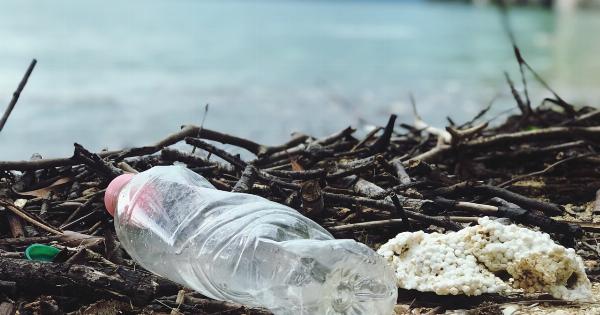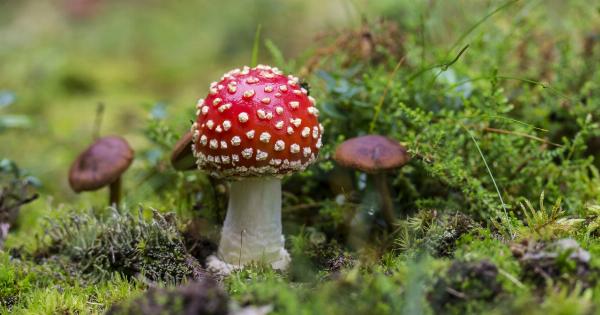Our daily meals should represent a time of joy, sharing and nourishment for our bodies. However, in this day and age, our food is far from just providing us with essential nutrients and required vitamins.
To meet the demands of food production and profits, our food is often laced with toxic substances, preservatives, and chemicals that are harmful to our bodies.
What Are Toxic Substances found in our Food?
Toxic substances can be present in different forms in our food. Some are naturally occurring, while others are introduced during food production, packaging, or transportation. The following are some of the common toxic substances found in our food:.
Heavy Metals
Heavy metals such as lead, mercury, arsenic, and cadmium can contaminate our food from different sources such as polluted air, water, soil or through industrial activities.
These metals can accumulate in animal and plant tissues and can cause serious health problems such as neurological disorders, reproductive problems, and cancer in humans.
Pesticides and Herbicides
Pesticides and herbicides are chemicals that are used to control pests and weeds respectively.
Although they help increase food production, they can have harmful effects on consumers’ health, which can range from mild skin irritations to cancer and birth defects. Pesticides and herbicides are not only present in conventional foods but also in organic food production as well.
Additives and Preservatives
Food additives and preservatives are chemicals that are added to processed and packaged foods to enhance their flavor, color, and shelf life.
Although these chemicals are approved by the FDA, many studies have raised concerns about their safety for human consumption. Some of the common food additives and preservatives include artificial sweeteners, sodium nitrite, BHT, and BHA.
Bisphenol A (BPA)
BPA is a chemical that is used in the production of plastics and lining of food packaging and cans. It is commonly found in canned food, beverages, and water bottles.
BPA is known to mimic estrogen in the body and can disrupt the endocrine system, increase the risk of hormonal cancers, and cause developmental and behavioral problems in children.
Antibiotics and Hormones
Antibiotics and hormones are commonly given to animals raised for food production to prevent infections and promote growth. However, these drugs can end up in our food and can cause antibiotic resistance and hormonal imbalances in humans.
Studies have shown a link between the consumption of these products and chronic health problems such as obesity, diabetes, and cancer.
Nitrates
Nitrates are found in processed meats such as bacon, ham, and sausage. They are used as preservatives and to add flavor and color to the meat. However, nitrates have been linked to an increased risk of cancer and other health problems.
To reduce the consumption of nitrates, it is advisable to choose fresh meat over processed meats.
How to Reduce Your Exposure to Toxic Substances in Food?
The following are some of the steps you can take to reduce the exposure to toxic substances in your food:.
Eat Fresh and Organic Foods
Fresh and organic foods are less likely to be contaminated with toxic substances than processed and conventionally grown foods.
Eating fresh fruits and vegetables, whole grains, and lean proteins from organic sources can help reduce your exposure to toxic substances.
Choose Non-Toxic Cookware
Cooking pots and pans made of non-toxic materials such as stainless steel, cast iron, ceramic, and glass are safer than those made of non-stick materials. Non-stick cookware can release toxic fumes when heated at high temperatures.
Read Labels
Reading the labels on packaged foods can help you identify and avoid foods that contain toxic substances. Avoid foods with a long list of ingredients, artificial colors and flavors, and high amounts of sodium, sugar, and fat.
Wash Your Produce
Washing your fruits and vegetables thoroughly before eating them can remove pesticides and other toxic substances that may be present on their surface.
Avoid Processed Meats
Processed meats are high in nitrates, preservatives, and other harmful chemicals. Choosing fresh meat over processed meat can help reduce your exposure to these substances.
Avoid Plastic Containers for Food Storage and Microwave Heating
BPA and other toxic chemicals can leach into food when stored or heated in plastic containers. It is advisable to use glass, ceramic, or stainless steel containers for food storage and heating.
Conclusion
The use of toxic substances in food production is a serious concern, and it is important to educate ourselves about the potential harm they can cause to our health.
By making some simple changes to our diet and lifestyle, we can reduce our exposure to these substances and protect our health in the long run.






























